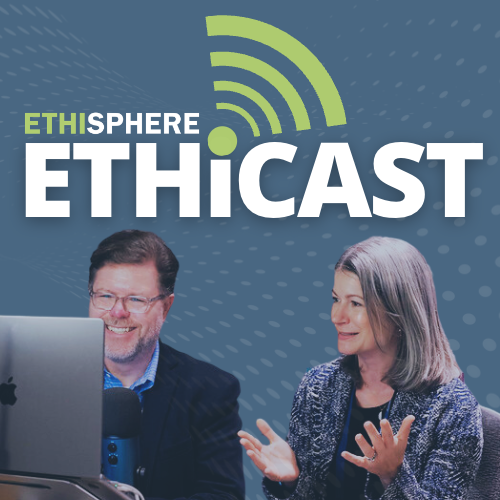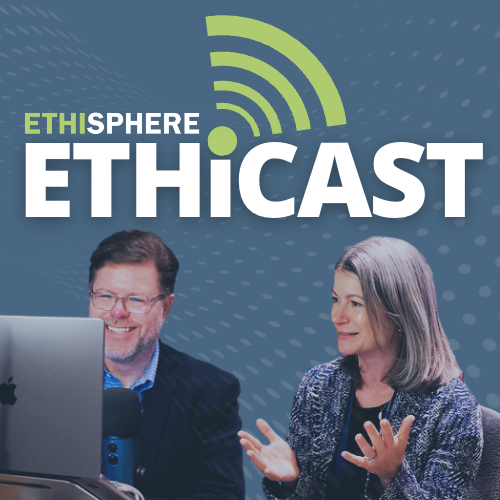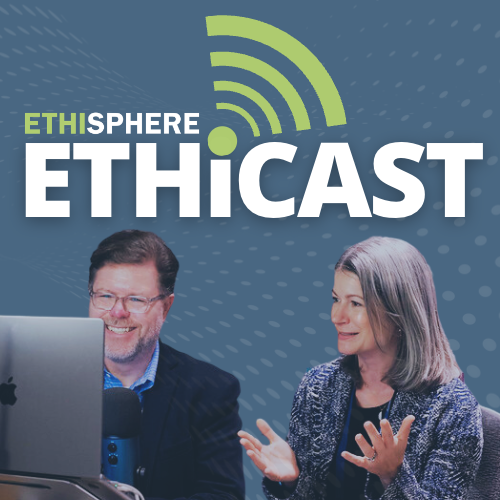[00:00:00] Speaker A: Hi, everyone. The Business Ethics Leadership alliance has questions and we have answers. I'm your host, Bill Coffin. Welcome to another Bella Asks episode of the Ethicast.
The Business Ethics Leadership alliance, or bella, is a global ethics and compliance community that provides exclusive access to helpful data, program benchmarking, roundtable events, and a resource library with hundreds of policy guidance documents, member contributed program examples, and more.
One of bella's most popular benefits is the concierge service, in which members can submit any question at all regarding ethics and compliance. And our internal experts will provide an answer and helpful resources with additional information.
And while we invite everyone watching and listening to join bella, we also know that there's no competition in compliance, which is why we're using this program to thematically respond to high level questions from the BELLA for the benefit of E and C teams everywhere. And joining us once again to answer those questions is Bella chair Erica Salmon Byrne. Erica, it's so good to see you again. Thank you for returning to the show.
[00:01:08] Speaker B: Bill, thank you so much for having me back. It's my pleasure. And it means that our, our members have more questions.
[00:01:13] Speaker A: Well, we have another culture question for you, and this one reads, how do I use my ambassador program to gain data points about our culture?
[00:01:21] Speaker B: Yeah, Bill, I love this question for a couple of different reasons.
First, it indicates to me that this particular organization, A, has an ambassador program, so that's step one. And B, is looking for other ways to gather information on culture that go beyond engagement survey questions or culture survey questions. Right. We know that the mood, the environment, the informal systems inside an organization can change dramatically in a relatively short period of time depending on what's going on with the leadership team at that particular function or that particular region. And all of those things can make your existing data pool or your data lake obsolete, or if not obsolete, at least no longer quite as accurate as it was before. And so since surveys are a point in time measurement effort, you really want to look for other places where you can get a sense, you can get a pulse of what's happening across an organization. And so we see some companies doing this with pulse surveys where they're doing that kind of survey activity on a more regular basis. But we also see organizations thinking to themselves, what other methodologies or modalities, rather, what other modalities could I use to get a sense of what's happening on the ground in a particular part of the business? And your ambassadors are a great way of doing this because they're on the ground in a particular part of the business. So A couple of ideas of things you can do with your ambassadors. One is a topical pulse.
What questions are employees asking you? Right. Which of the various topics that we're giving you to talk about for your particular part of the business seem to be resonating most deeply with your particular employee base?
So that's one right little survey. If, let's say you are maintaining the best practice of meeting on a quarter, at least a quarterly, if not a monthly basis virtually with your ambassadors, you can do a little poll in teams or zoom and say over the course of the last 60 days, you know, which of the following five topics have people been asking you the most about? And so maybe it's conflicts of interest, maybe it's gifts and entertainment. And that information you can then use to update your training plan, update your comms plan, think about new resources for your ambassadors. So definitely leaning into the, the teams or, or zoom polling opportunity to gather real time in the moment feedback from your ambassadors on the kind of topical piece of things. The other thing you can do is you can ask your ambassadors to ask questions of employees. So let's say you've got an ambassador program that is set up and you're using that ambassador program because you have a lot of manufacturing employees. Well, you've got an ambassador in the factory. You could ask that particular ambassador to ask. And I would keep this real simple, 1, 2, maybe 3 questions of employees at shift changes or otherwise. That would give you a little bit of a pulse of what's happening on the ground in that particular part of the business. So, you know, soliciting ambassador opinions is kind of method one. Actually asking your ambassadors to actually ask employees directly would be method two. Third option would be making sure your ambassadors are on your audit team schedule when they are going in to do internal audits in a particular part of the business. Because audit can ask questions in the moment of your ambassadors in person that might be slightly harder for you to ask because you're not on site.
[00:04:35] Speaker A: Erica, do you mind if I ask a follow up question?
[00:04:38] Speaker B: Bill, I never mind a follow up question.
[00:04:42] Speaker A: So this one may not have a good answer to be honest. But you know, when I have spoken to people who are attached to ambassador programs, the thing about ambassador programs that strikes me so much is how they are comprised of volunteers who are really, they're really true believers, right? They super, super invested when, when tapping those people to get us a thumb pulse of the culture. And are there any particular challenges or opportunities by using people who are so uniquely invested in the culture either because, you know, either a strength because they're so hated or a challenge because they may go into it. They may be perhaps blind to certain things because they're so focused on advancing things and may, may not easily see problems.
[00:05:24] Speaker B: Yeah, yeah, Bill. I mean I think being aware of that potential bias towards wearing rose colored sunglasses maybe is something or rose colored glasses rather, I think that is definitely something to be aware of. And that's the why? I wouldn't necessarily, if you were soliciting opinions from your ambassadors, I wouldn't necessarily craft questions that would be more of perception or opinion based questions. Right. I wouldn't ask them, you know, what do you think of the speak up culture in your particular business? You know, because you're going to naturally get some bias in those answers because of the people that are volunteering to, to do this work. So if you're soliciting opinions from your ambassadors, I would keep it much more topical. Right. What are you hearing? What are people asking? What resources are you finding are most successful? Is there a modality that you are using that you think is better for your business part of the business than others? And if so, why? Right. What might be driving the fact that people want to do Jeopardy. Style case studies? Right. Or whatever the case may be.
Getting those kind of, of more objective pieces of feedback from your ambassador group would be the direction I would go in if you were soliciting input or information directly from your ambassadors for that bias reason. And it's, you know, look, I mean, we need champions. That's the point of an ambassador program.
If you're asking your ambassadors to ask employees questions, I'm much less concerned about that because then you're getting that broad based feedback from the whole employee, the, the employee base.
[00:06:56] Speaker A: Well, Erica, it's like a mini global ethics summit main stage session every time you come on the show. So really appreciate your time and your insight. Thanks so much.
[00:07:03] Speaker B: Oh, absolutely, Bill. 100%. My pleasure. To all those Bella members out there listening, keep the questions coming because it means I get to come back and answer them with Bill.
[00:07:11] Speaker A: To learn more about Bella, please Visit@the sphere.com Bella to request guest access to the member resource hub and to speak with the Bella engagement director. And if you have a question that you would like answered on this program, contact the Bella Concierge service and we'll get to work on it for you. I'm Bill Coffin and this has been another Bella Asks episode of the Ethicast. If this is your first time listening, we hope you've enjoyed the show. For more content like this every week, please subscribe here on YouTube, Apple Podcasts or Spotify. You can also get our free weekly
[email protected] ethicast and we've got plenty more content for
[email protected] resources. Thanks so much for joining us. And until next time, remember, strong ethics is good business.


